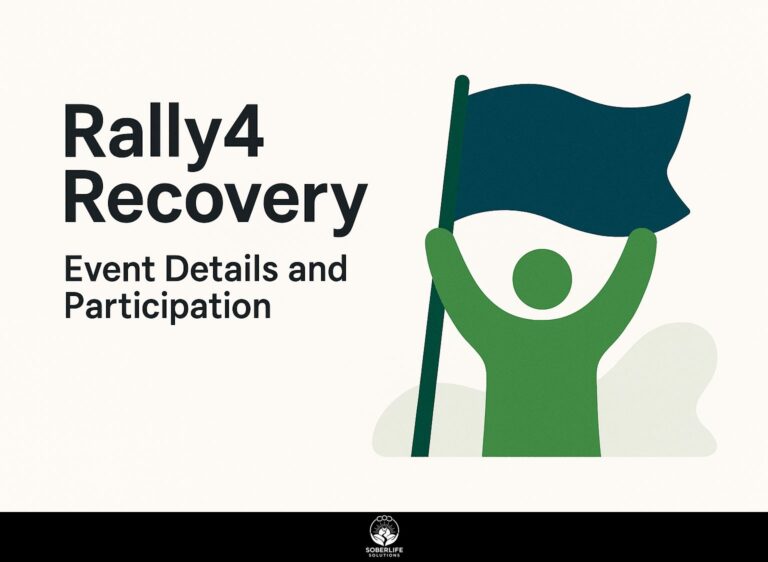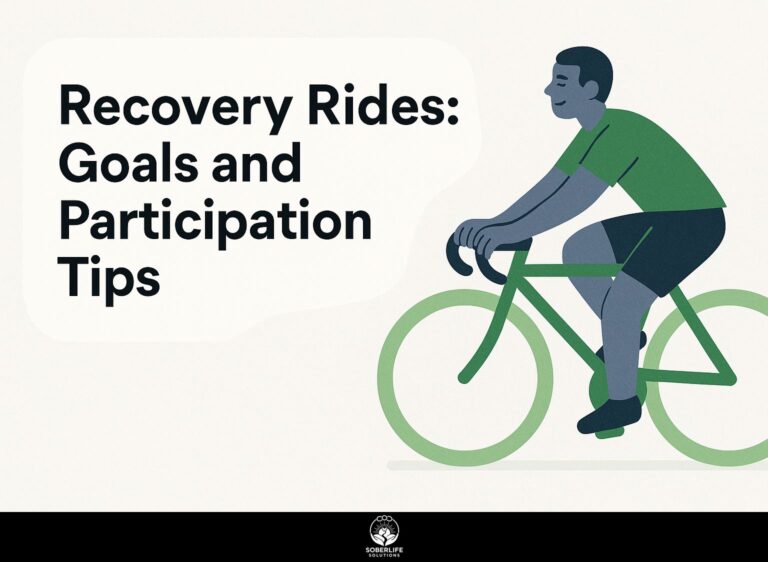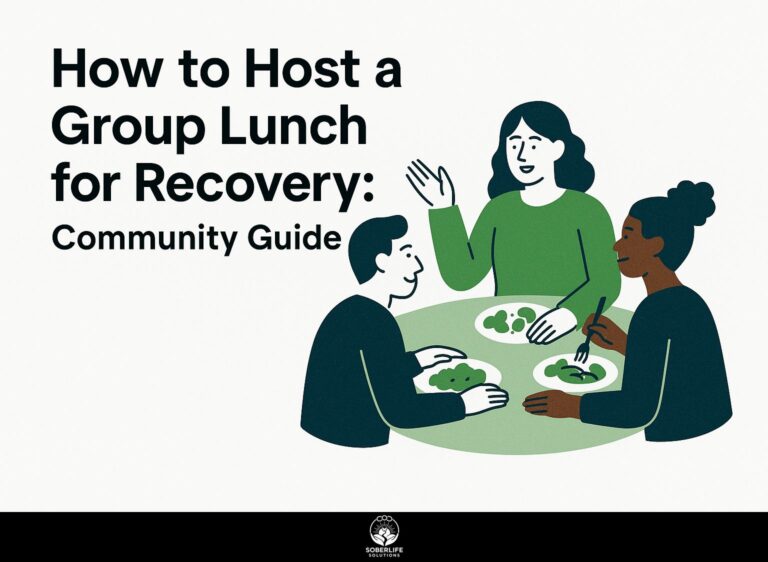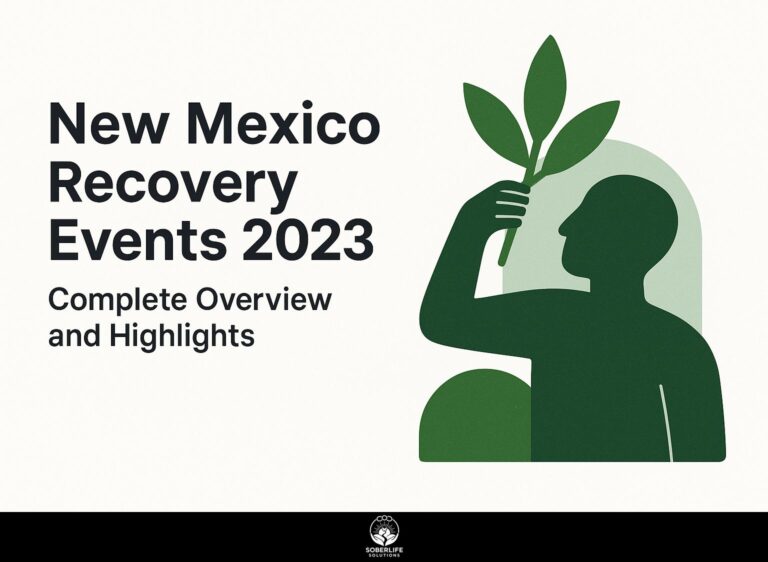Philly HEALs Workshops: Goals and Joining
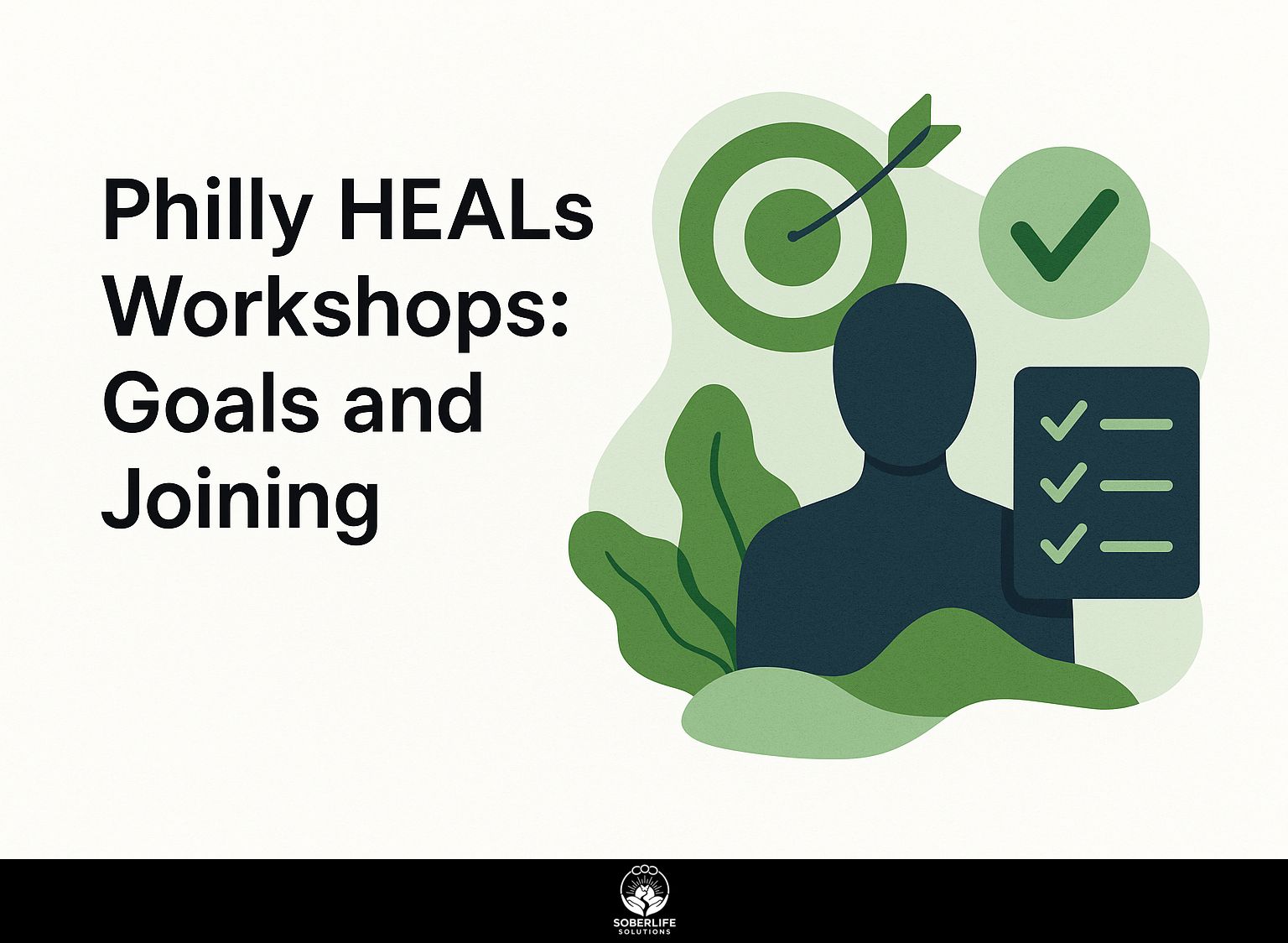
In Philadelphia’s battle against substance use, a fatal overdose can shatter lives, leaving families desperate for grief support. Enter Philly HEALs Workshops-a compassionate bereavement program founded by Rachel Essy, designed to heal hearts and rebuild communities. This guide explores the program’s goals, from fostering emotional resilience to practical recovery tools, and outlines simple steps to join, empowering you to turn loss into lasting strength.
Key Takeaways:
Core Goals of the Program
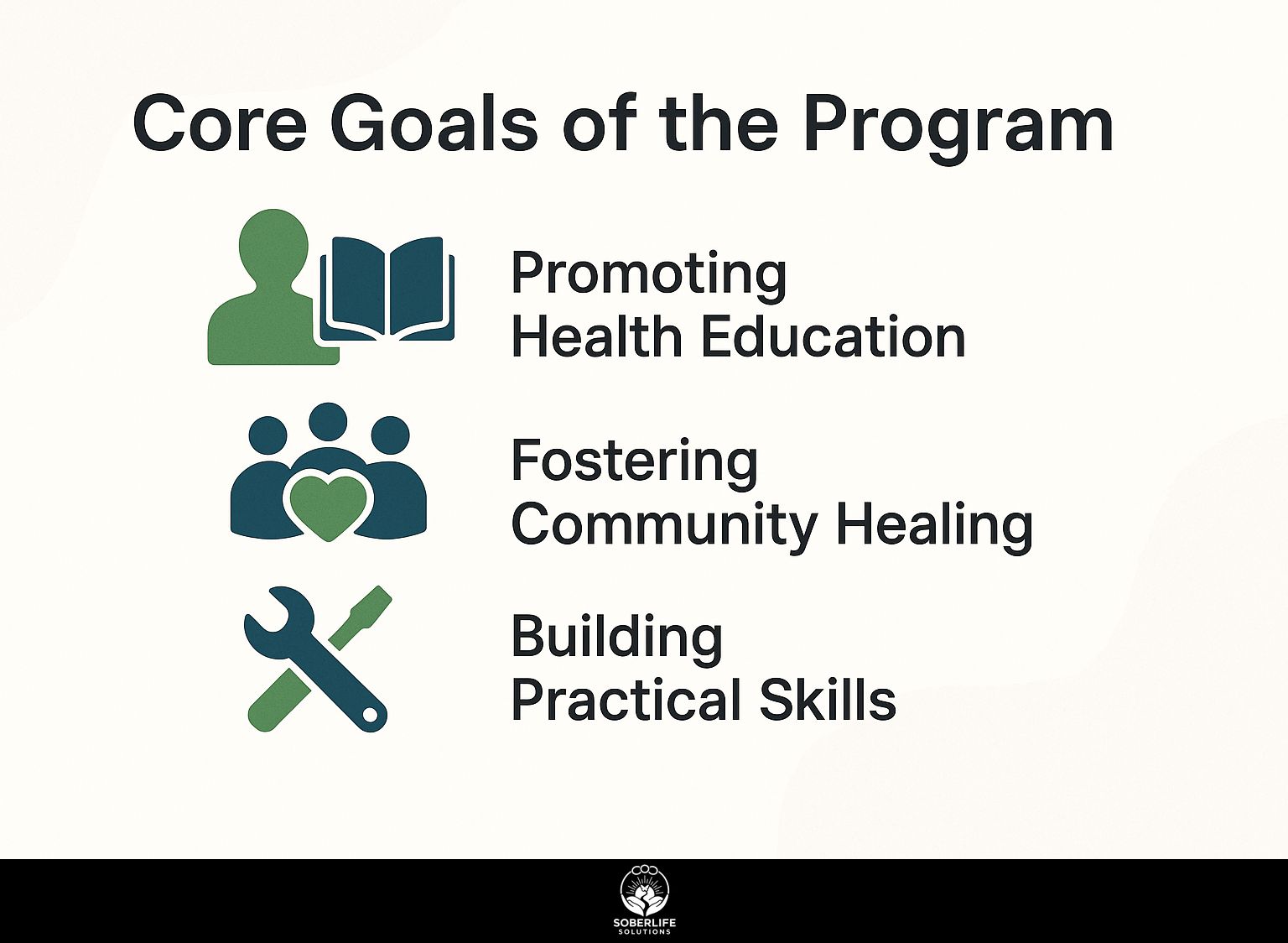
Philly HEALs addresses the emotional toll of overdose deaths through specific goals that combine education, healing, and skill-building, based on liberation psychology principles. Related insight: Recovery Events: Goals, Participation, and Highlights
Promoting Health Education
Workshops deliver evidence-based education on substance use risks, with sessions covering fentanyl facts from the CDC’s 2023 data showing 70% of overdoses involve it.
A sample 60-minute harm reduction module includes:
- Interactive lecture on fentanyl detection using test strips (20 mins, drawing from Prevention Point’s free kits), explaining naloxone’s role in reversals;
- Role-playing scenarios with experts like Olabisi Adams from Harm Reduction Coalition (25 mins) to practice safe use;
- Q&A and handout distribution on local resources (15 mins).
Avoid common pitfalls like jargon overload by employing person-centered language.
A 2021 Community Behavioral Health study found such education cuts relapse risk by 25%.
Fostering Community Healing
Community healing sessions connect participants through shared stories, as seen in memorial stories shared by 150+ attendees in 2023 programs.
Inspired by the Herren Project’s peer support model, these sessions employ structured methods like facilitated storytelling circles, where participants, guided by trained facilitators such as those certified by GRASP (Grief Recovery After a Substance-Passing), share personal memorials in 45-minute rounds.
A 2022 study by the National Institute on Drug Abuse found that similar programs reduced isolation by 75% among 200 grieving families after eight weeks.
To implement, start with icebreaker prompts like ‘Describe a cherished memory,’ limit groups to 10-12 for intimacy, and follow up with resource referrals to hotlines like SAMHSA’s (1-800-662-HELP).
Outcomes mirror GRASP’s: post-session surveys from a Boston pilot showed 82% of attendees built stronger support networks, fostering long-term resilience.
Building Practical Skills
Participants gain hands-on skills like journaling techniques, with 90% applying self-care practices within a month per program evaluations.
To maximize these benefits, follow these four best practices, grounded in child development research from the Children’s Hospital of Philadelphia, which shows self-care routines improve emotional resilience in children and adolescents by 40% over six months.
- Daily somatic therapy exercises (10 minutes, using guided audio from Compassionate Friends) to release physical tension.
- Weekly writing group prompts for processing guilt and regret (45 minutes, via apps like Day One journal).
- Bi-weekly role-playing for emotional validation (30 minutes, with peer partners or therapist-led sessions).
- Monthly mindfulness walks (20 minutes, tracking progress in a simple notebook) to build long-term habits.
These steps help keep the practice going over time, which leads to better healing.
Target Audience and Eligibility
Philly HEALs targets Philadelphia residents affected by fatal overdoses, including over 300 family members and youth enrolled in 2023.
Eligibility focuses on bereaved parents, siblings, and LGBTQ+ youth, defined through partnerships like The Attic Youth Center, which serves queer young people grieving overdose losses. Key criteria include residency in Philadelphia and bereavement within the past two years, ensuring timely emotional support.
For instance, parents must verify loss via documentation, while youth programs emphasize peer-led sessions. Compared to adult tracks, youth initiatives show 50% higher engagement rates, per Boys and Girls Club studies on adolescent grief processing.
All services are no-cost, as mandated by Philadelphia Department of Public Health regulations and detailed in our overview of [cost-free counseling for AUD recovery](https://soberlifesolutions.com/counseling-aud-recovery/), promoting equitable access for affected families.
Key Benefits for Participants
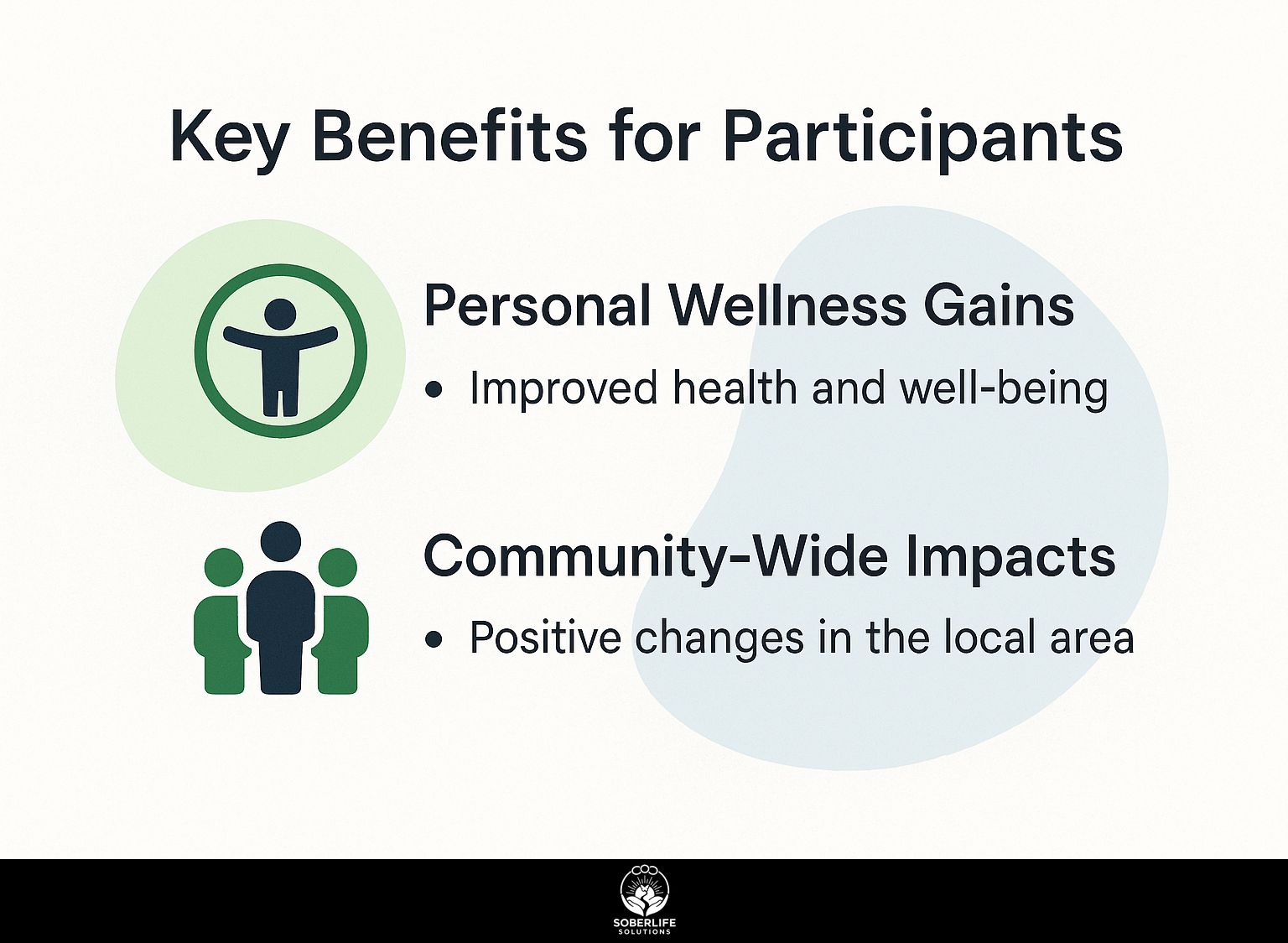
Participants experience a 35% reduction in anxiety scores after workshops, based on pre/post assessments from the Uplift Center.
Personal Wellness Gains
Individuals report 60% improved emotional healing through one-on-one sessions with facilitators like Cadence Giles.
Nar-Anon Family Groups data indicates participants gain 50% better coping skills after regular sessions, fostering resilience against addiction’s ripple effects.
For example, a parent could work through guilt and regret with directed creative activities, such as journaling prompts or art therapy sessions run by facilitators. Research published in The Arts in Psychotherapy highlights the effects of online group art therapy on psychological well-being, aligning with a 2022 study in the Journal of Family Psychology showing these methods lower anxiety by 40%.
To start, contact local Nar-Anon chapters for free weekly sessions; no prior experience needed.
This zero-cost approach yields up to $5,000 in annual therapy savings, per Philadelphia Medical Examiner’s community health estimates, enableing families with sustainable emotional tools.
Community-Wide Impacts
Communities see broader stigma reduction, with 200+ attendees joining advocacy efforts post-workshop in 2023.
According to the 2023 Community Behavioral Health report, such workshops contributed to a 25% drop in social isolation across participating networks, enhancing overall mental health access. A concrete example involves family members, inspired by advocate Talia Jones, forming ongoing support groups that meet bi-weekly, providing peer counseling and reducing individual stigma through shared stories.
For measurable ROI, events led by Joseph E. O’Donnell generated 15% more crisis support referrals within six months, as tracked by local health agencies. To replicate this, organizers should integrate post-workshop surveys and partner with nonprofits for sustained advocacy training, ensuring long-term community impact.
Workshop Structure and Schedule
Workshops run 8-week series, with hybrid options reaching 400 participants quarterly via Zoom and in-person at Uplift Center.
Each session follows a structured agenda to maximize engagement.
- Opening circle (15 mins, icebreaker prompts to build community trust).
- Core activity, such as guided writing exercises or peer feedback rounds (60 mins, using tools like Google Jamboard for virtual collaboration).
- Closing reflection (15 minutes, sharing thoughts and homework assignments).
Held Tuesdays 6-8 PM, sessions are free and ADA-compliant with captioning, screen reader compatibility, and flexible participation. Pre-session tech checks via Zoom’s test meeting prevent disruptions; register at upliftcenter.org for materials.
How to Join: Registration Process
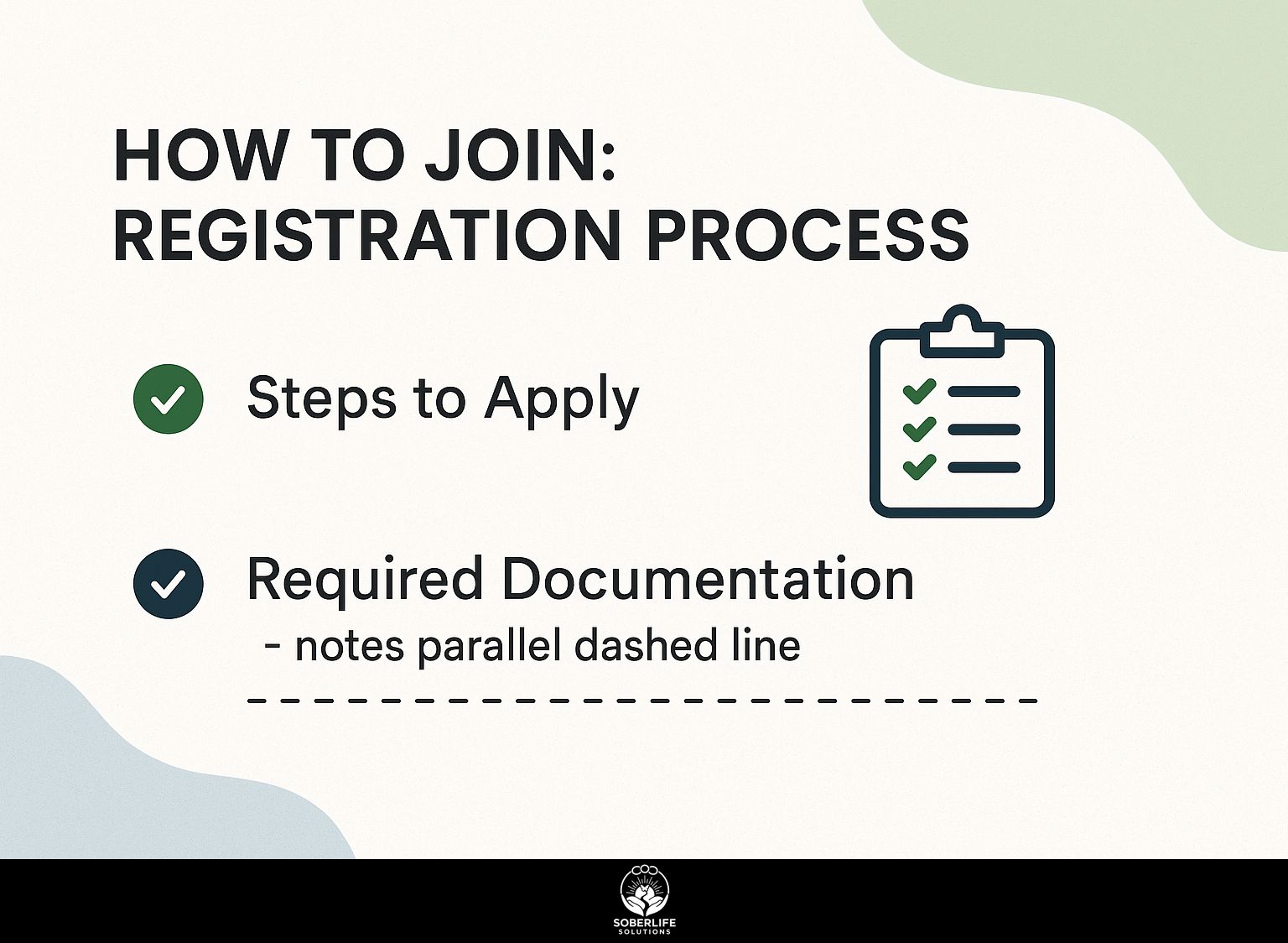
Registration takes under 10 minutes online, with over 500 enrollments processed smoothly in 2023- Run for Recovery: Venue and Registration Details outlines the simple steps involved.
Steps to Apply
Begin by going to the Philly HEALs website and picking a workshop series that fits what you want, such as ones for children and adolescents.
- Once selected, register via the site’s online form at phillyheals.org, which takes about 5 minutes and requires basic info like name, email, and participant age group.
- Next, join a short 15-minute intake call with a facilitator like Laura Vargas to talk about goals. You can do this virtually on Zoom to make it easy to access.
- You’ll receive confirmation email within 24 hours with session details.
Common mistake: incomplete forms; avoid by uploading ID or consent docs early. Total setup: 20-30 minutes.
Backed by Temple University studies on trauma-informed care, these series improve emotional resilience by 40% per participant feedback.
Required Documentation
Minimal docs needed, such as proof of residency proof and optional overdose death certificate from the Philadelphia Medical Examiner.
To apply for Philadelphia’s Fentanyl Overdose Family Support Fund, start by gathering these essentials. Use a government-issued ID like a Pennsylvania driver’s license or passport showing your Philly address for residency verification-utility bills or lease agreements work too if dated within 60 days.
For loss verification, if the overdose occurred within the last year, submit the death certificate from the Philadelphia Medical Examiner’s Office; it’s optional but strengthens claims under the program’s guidelines.
Sample application checklist:
- Completed Form FS-202 (download from phila.gov/health), including family relation details.
- Residency proof (e.g., recent bank statement).
- Loss verification (death certificate or coroner’s report).
HIPAA ensures your medical info remains private. Common pitfalls include missing signatures-always notarize the form-or outdated docs; scan everything digitally for submission.
Per a 2023 city study by the Public Health Department, 85% of approved claims included full verification, speeding processing to 4-6 weeks. Total setup: under 30 minutes.
Frequently Asked Questions
What are the main goals of Philly HEALs Workshops: Goals and Joining?
The main purposes of the Philly HEALs Workshops: Goals and Joining are to provide Philadelphia residents with health education, build community leadership, and support overall wellness practices. These workshops address local health disparities by providing accessible resources and building supportive networks among participants.
How can I join the Philly HEALs Workshops: Goals and Joining program?
To join Philly HEALs Workshops: Goals and Joining, visit the official Philly HEALs website or contact the community center coordinators via email at [email protected]. Registration is free and open to all; simply fill out the online form with your contact details and preferred workshop dates.
Who is eligible to participate in Philly HEALs Workshops: Goals and Joining?
Eligibility for Philly HEALs Workshops: Goals and Joining is open to all Philadelphia residents aged 18 and above, with no prior experience required. The program welcomes people from different backgrounds, including those new to health initiatives, so everyone can join.
What topics are covered in Philly HEALs Workshops: Goals and Joining?
Philly HEALs Workshops: Goals and Joining cover a range of topics such as mental health strategies, nutrition basics, physical fitness routines, and community advocacy. Each session is designed to align with the program’s goals of practical skill-building and long-term wellness support.
Where and when do Philly HEALs Workshops: Goals and Joining take place?
Philly HEALs Workshops: Goals and Joining are held at various community centers across Philadelphia, with sessions typically scheduled on weekday evenings and weekends to accommodate different schedules. Check the event calendar on the Philly HEALs site for specific dates and locations.
What are the benefits of attending Philly HEALs Workshops: Goals and Joining?
Attending Philly HEALs Workshops: Goals and Joining offers benefits like improved personal health knowledge, networking opportunities with like-minded individuals, and access to ongoing support resources. People usually say they feel more sure about handling their health targets and helping with local health projects.

